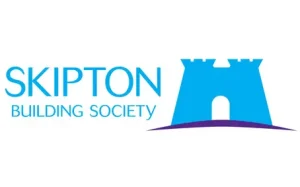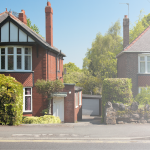Deposit-free mortgage for renters set up by Skipton to help ‘trapped’ tenants
Skipton Building Society says there is a “clear gap in the market” for people who have a history of renting so can prove they can afford monthly mortgage payments. It will be the first 100% mortgage in the UK since the financial crash.
A deposit-free mortgage is being launched to enable first time buyers to borrow all the cost of a property without any security.
It’s the first time since the global financial crash in 2008 that would-be borrowers in the UK will be able to choose a 100% loan-to-value mortgage.

Skipton Building Society is offering the mortgage to renters who can demonstrate at least a year of paying rent and have a good credit score.
Tenants will only be lent a mortgage equivalent to their monthly rental payments to ensure they can afford the property: every month they will not pay more than their current rent costs.
The product aims to help renters break out of “renting cycles” and reduce dependence on guarantors and the so-called bank of mum and dad.
Some mortgage products allow buyers to borrow 100% of a property price but require a third party, sometimes a family member, to put up security for the loan.
These products are typically only the preserve of first-time buyers with wealthy families or those who have saved for many years.
The Skipton Building Society loan is a five-year fixed-rate mortgage, which offers a set interest rate for five years.
Data from the building society says there are 4.6 million households renting privately across England, more than double the number recorded in 2000.
“We need to tackle the UK’s housing affordability crisis to enable more people, especially renters who are trapped in renting cycles, to buy their first home,” the chief executive of home financing at Skipton, Charlotte Harrison, said.
She added: “People trapped in renting is one of the UK’s biggest housing challenges, having a massive impact on the fabric of our society.
“With escalating rents and the cost of living squeeze further impacting people’s ability to save for a house deposit – it’s making it almost impossible for people get onto the property ladder.”
There’s a “clear gap in the market” for people who have a history of renting so can prove they can afford mortgage payments, she said, “but there is currently no solution for them to buy a property due to lack of savings or access to family wealth”.
Higher rental prices have made it difficult for tenants to save for a deposit payment needed to qualify for a mortgage.
Rents have increased as property owners pay more for their mortgages as interest rates have risen, making borrowing more expensive.
The Bank of England is expected to increase interest rates for the twelfth time in a row on Thursday, bringing the borrowing rate to 4.5% and making mortgages yet more expensive.
The central bank is raising interest rates in an effort to depress economic growth and bring inflation down to 2%
At the same time, house prices are coming down.
Latest figures from Halifax, one of the UK’s biggest mortgage lenders, showed in April house prices fell 0.3% while year-on-year prices were up 0.1%.
The average UK property now costs £286,896, compared with £287,891 in March.
* Your home may be repossessed if you do not keep up repayments on your mortgage.










